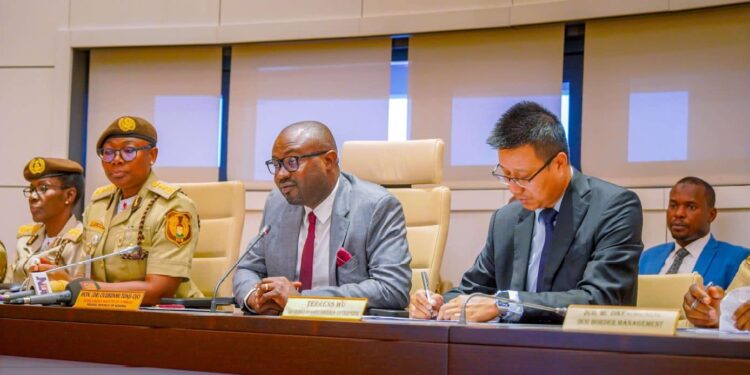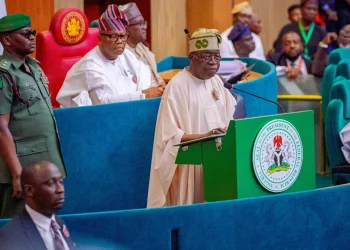Minister of Interior Bunmi Tunji-Ojo has defended the government’s record on prison security, asserting that jailbreak incidents have significantly reduced under the current administration compared to previous years.
Speaking on Channels Television’s Politics Today Thursday, Tunji-Ojo disputed claims that seven jailbreaks had occurred since 2023, stating that only three notable cases took place in Nasarawa, Niger, and Borno states.
The minister provided context for each incident, explaining that the Nasarawa case involved only a small number of inmates, while the Niger jailbreak in Suleja resulted from a collapsed fence. He attributed the Maiduguri incident to flooding caused by a dam disaster rather than security lapses.
“That was nobody’s fault. People died, there was a disaster, and the entire correctional centre was overflooded,” Tunji-Ojo said regarding the Borno incident.
The minister revealed that the Suleja jailbreak exposed weaknesses in the country’s biometric record system, prompting immediate improvements. “It was then we realised our biometric system was not really up to date. We immediately worked on that,” he stated.
Regarding a recent escape involving 16 inmates, Tunji-Ojo disclosed that seven had been recaptured, with security agencies actively pursuing the remaining nine fugitives.
“As I speak to you, we have digitalised the biometric system and linked it with all security agencies. Those agencies are now better equipped to react,” the minister assured.
Tunji-Ojo highlighted the challenges facing Nigeria’s correctional system, noting that the country operates 246 correctional centers, many over 70 years old, with some exceeding a century. He announced that approximately 12 facilities are currently undergoing rehabilitation.
Under President Bola Tinubu’s administration, the minister reported significant improvements in healthcare provision, with 50 doctors and 100 nurses employed for correctional facilities, alongside the deployment of National Youth Service Corps doctors.
The minister emphasized structural challenges within the system, revealing that correctional center management now falls under the concurrent legislative list, allowing both federal and state governments to operate facilities.
“About 72% of inmates are state offenders, with 67% awaiting trial, yet the federal government bears most of the cost,” he explained, highlighting the financial burden on the federal government.
Tunji-Ojo announced plans for collaboration with state governors to develop joint strategies addressing systemic challenges within the correctional system.
Defending the administration’s approach, the minister stated: “We do not make excuses. The President always says we were elected to produce results, not to shift blame.”
He concluded by emphasizing the government’s commitment to improvement: “I want to put it on record that this administration has done a lot in the last two years in terms of providing resources and making sure our facilities and systems are better secured.”
The minister’s comments come amid ongoing concerns about prison security and conditions across Nigeria’s correctional facilities.



















